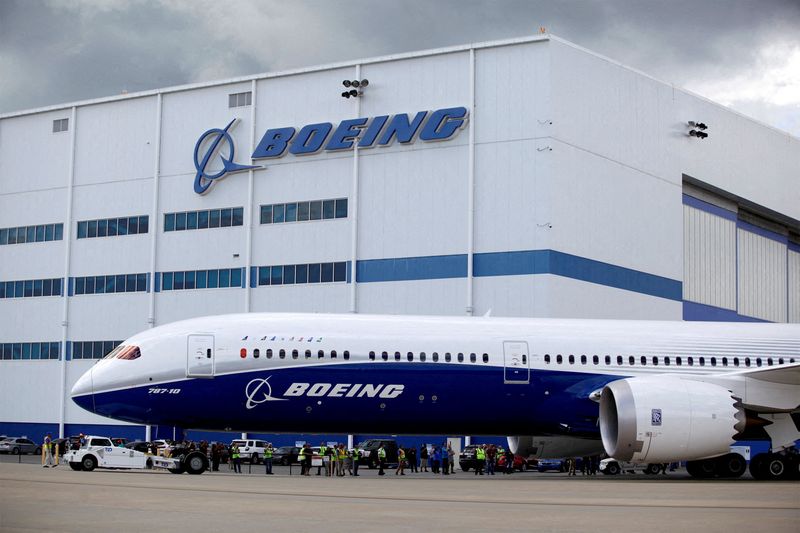Intel stock spikes after report of possible US government stake
ARLINGTON, Va. - The U.S. Air Force has awarded aerospace giant Boeing [NYSE: BA], currently valued at $136.3 billion in market capitalization, a contract to develop its next-generation fighter aircraft, known as the Next-Generation Air Dominance (NGAD) Platform. This new class of fighter jets is expected to provide the U.S. with a significant upgrade in capabilities including enhanced range, survivability, lethality, and adaptability. According to InvestingPro data, Boeing remains a prominent player in the Aerospace & Defense industry, though it currently operates with moderate debt levels.
Steve Parker, interim president and CEO of Boeing Defense, Space & Security, expressed the company’s readiness to deliver this advanced 6th-generation fighter capability, highlighting Boeing’s substantial investment in preparation for the project. Parker’s statement emphasized the company’s commitment to supporting the Air Force’s mission with the most innovative NGAD aircraft.
Boeing has a longstanding history in the production of combat aircraft, with models such as the P-51 Mustang, F-4 Phantom, F-15 Eagle, F/A-18 Hornet, and EA-18G Growler marking its legacy in the aerospace industry. The selection of Boeing for the NGAD Platform is set to build on this legacy and aims to set a new global standard for 6th generation fighter technology.
Details regarding the NGAD Platform’s technical specifications and programmatic aspects are classified under U.S. national security and export laws, and therefore have not been disclosed.
As a leading aerospace company and the top U.S. exporter, Boeing plays a significant role in the development, manufacturing, and servicing of commercial airplanes, defense products, and space systems. The company operates globally, with a presence in over 150 countries. Boeing’s extensive U.S. and international workforce, along with its supplier base, contribute to innovation, economic growth, sustainability, and community impact. The company prides itself on a culture that prioritizes safety, quality, and integrity. With a beta of 1.53, Boeing’s stock shows higher volatility than the broader market. Get deeper insights into Boeing’s financial health and detailed analysis through InvestingPro’s comprehensive research reports, available for over 1,400 top US stocks.
This press release statement serves as the source for the information reported.
In other recent news, Boeing is nearing a significant $32.7 billion deal with Korean Air, which includes new aircraft and GE Aerospace engines. This potential agreement involves orders for 20 777-9 and 20 787-10 planes, with an option for 10 more, and is valued at $24.9 billion. Additionally, the deal encompasses eight spare GE engines and engine maintenance services, worth $7.8 billion. Meanwhile, Malaysia Aviation Group announced plans to acquire 30 Boeing 737 aircraft, set for delivery in 2029, as part of its fleet modernization strategy. On the defense front, Lockheed Martin and Boeing await a major White House announcement regarding the next-generation fighter jet contract, a decision that could involve up to $16 billion in research and development. In analyst news, JPMorgan maintained its Overweight rating for Boeing, with a $200 price target, noting operational progress as a key success factor. However, Boeing’s Starliner capsule may need a third uncrewed test flight before it can transport astronauts again, following issues with its propulsion system. NASA officials are considering this additional test to ensure the Starliner’s readiness for regular astronaut flights.
This article was generated with the support of AI and reviewed by an editor. For more information see our T&C.
